Did you know that the global anti-aging market is projected to reach $610 billion by 2025? As women increasingly seek ways to combat skin changes linked to aging and reclaim their youthful glow, demand continues to rapidly rise for anti aging skin care products that deliver transformative yet gentle results.
Take 48-year old Julie who devotedly followed a skincare routine in her 20s – diligently cleansing, toning and moisturizing twice per day. While she noticed a visible difference in her skin’s radiance and smoothness early on compared to peers, crow’s feet and smile lines started gradually appearing in her late 30s. Over the next decade, noticeable wrinkles formed on her forehead and neck while cheeks started losing fullness.
Having invested heavily in prestige brands, Julie wondered if she may have to undergo treatments like laser resurfacing or injectables to rewind the clock. A friend suggested trying a customized prescription-strength topical routine first. Within just 6 weeks of adopting the new multilayered regimen tailored specifically to counter her collagen loss and photoaging, Julie reported looking 5 years younger. Today in her late 40s, Julie religiously sticks to her routine with supplements like collagen boosters while avoiding direct sunlight without protection.
Embarking on the journey through your 40s can bring about a newfound focus on skincare, as the signs of aging become more apparent. This comprehensive guide is designed to be your roadmap to anti aging skincare for women over 40, offering insights and strategies to help you navigate this transformative period with confidence and grace. Here’s what you can expect to discover:
- Identifying Your Skin Type: Learn how to assess your skin and choose the right products.
- Key Anti-Aging Ingredients: Understand the science behind the most effective ingredients like retinol, hyaluronic acid, and vitamin C.
- Personalized Skincare Routines: Get tailored advice for creating a skincare routine that matches your unique needs.
- Lifestyle Adjustments for Healthy Skin: Uncover the lifestyle habits that support skin health and contribute to a youthful glow.
- Advanced Treatments and Technologies: Explore the latest in skincare innovations and treatments that can help turn back the clock.
- FAQs: Have your most pressing questions about anti aging skincare answered.
With this guide, you’ll gain the knowledge to craft a skincare regimen that incorporates key ingredients, tailored routines, and lifestyle adjustments to support your skin’s health and preserve its youthful glow. So, let’s explore the art of aging gracefully, armed with the best skincare essentials that cater to your evolving needs.
Identify Your Skin Type
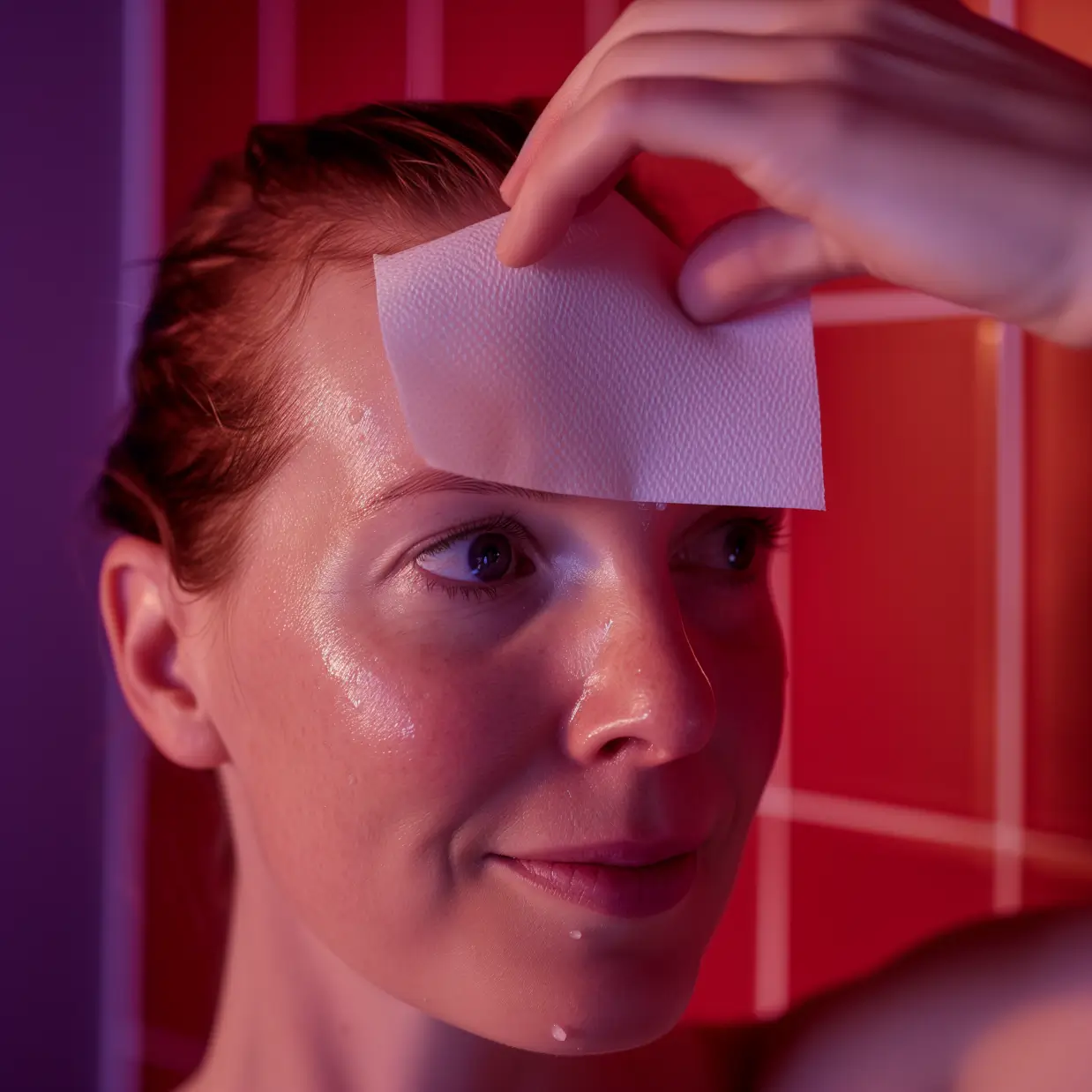
Read The Step-By-Step Guide: How to Determine Your Skin Type After 40
“I always thought I had dry skin, but after a proper assessment, I realized I was more on the combination side. Switching to products designed for my specific skin type made a huge difference in my skincare routine.” – Susan M., 47.
Pinpointing your skin type is crucial for choosing anti aging skin care products that specifically target its tendencies. The 5 main categories are:
- Oily: Excess oil, shine, large pores
- Dry: Tight, flaky, rough patches
- Normal: Balanced sebum levels
- Combination: Oily T-zone, dry cheeks
- Sensitive: Easily irritated
To identify your type, assess post-cleanse skin for:
- Oiliness: Signifies oily skin
- Tight sensation: Indicates dryness
- Oil blot test: More oil points to oily skin
- Pore appearance: Large pores typically equal oiliness
Matching products to your skin prevents adverse reactions and enhances results. Oily skin benefits from oil-free, salicylic acid formulas while dry skin thrives with rich moisturizers.
Learn Key Anti Aging Skin Care Ingredients In-Depth
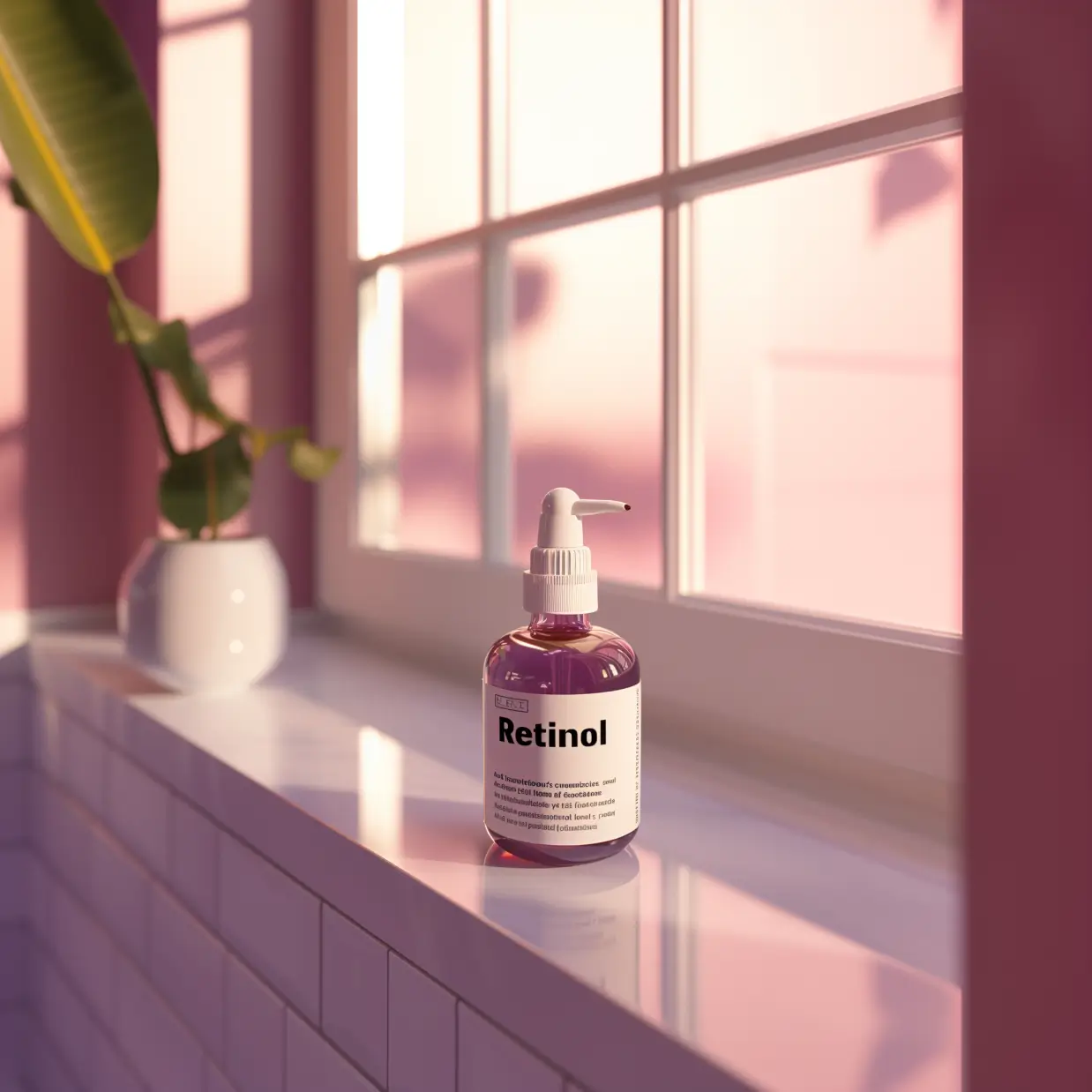
Read The Step-By-Step Guide: How To Start Incorporating Retinol Into Your Anti-Aging Routine
“After incorporating retinol into my nightly routine, I’ve seen a noticeable improvement in my skin’s texture and fewer fine lines. It took a few weeks to get used to it, but now it’s a non-negotiable part of my skincare.” – Linda T., 49
Many anti aging skin care products incorporate rejuvenating components that collectively address concerns like wrinkles and dullness. Let’s explore retinol, hyaluronic acid, and vitamin C more closely, including evidence-based information and interesting facts,
Retinol
A derivative of vitamin A, retinol is one of the most extensively researched ingredients demonstrating powerful effects on signs of aging.
In multiple gold-standard double-blind, vehicle-controlled clinical studies, retinol (0.04% – 0.4%) used for 12 weeks consistently shows substantial improvements in measures of fine lines, wrinkles, skin smoothness, tone evenness, and pigmentation versus the vehicle cream alone. Participants and evaluators rated retinol treated sides as significantly more improved compared to non-retinol control sides.
Retinol: Did You Know?
Retinol was first approved by the FDA in 1971 as an acne treatment, and its anti-aging properties were subsequently discovered through continued research.
Retinol: Evidence-Based Benefits
Retinol converts to retinoic acid in skin, binding receptors to accelerate cell turnover and collagen production. A study published in the Journal of Cosmetic Dermatology shows that regular use of retinol visibly reduces fine lines and deep wrinkles. It provides exfoliating and anti-inflammatory effects.
Retinol: Usage
Introduce slowly starting at lower concentrations to avoid irritation. Apply once daily at night before heavier creams. Follow with SPF in mornings to protect the new skin cells.
Hyaluronic Acid
Hyaluronic acid (HA) is a powerful humectant capable of attracting and binding 1000x its weight in water. With its excellent hydration capabilities and moisture-retention properties, HA demonstrates anti-aging and smoothing effects – in a clinical trial, applying 0.1% HA serum twice daily for 2 months resulted in 26% moisture content increase versus baseline along significant reductions in visible wrinkles. Over half the subjects rated HA application as comparable to the effects of BOTOX injections in improving skin suppleness and smoothness.
Hyaluronic Acid: Did You Know?
Hyaluronic acid is a substance naturally found in our skin and joints, and its ability to retain water makes it a crucial ingredient for maintaining skin hydration.
Hyaluronic Acid: Evidence-Based Benefits
Attracts and binds up to 1000x its weight in moisture. Different molecular sizes penetrate variably to hydrate all skin layers. Research indicates that hyaluronic acid not only helps skin retain moisture but also reduces inflammation and supports wound healing.
Hyaluronic Acid: Usage
Look for formulas with multiple sizes of hyaluronic acid molecules. Apply on damp skin before sealing with a ceramide moisturizer.
Vitamin C
A potent antioxidant, vitamin C neutralizes skin-damaging free radicals from UV exposure and other environmental sources before they degrade collagen and elastin.
In double blind, vehicle-controlled 6-month clinical trials, 10% and 15% vitamin C (L-ascorbic acid) led to increased collagen production ranging between 60-80% versus vehicle alone based on skin biopsies. This resulted in improved parameters including wrinkling, texture, tone, and elasticity.
Vitamin C: Did You Know?
Vitamin C is also known as ascorbic acid, and it’s essential for the growth and repair of tissues throughout the body, including the skin.
Vitamin C: Evidence-Based Benefits
Vitamin C neutralizes free radicals induced by UV exposure and other factors to prevent oxidative damage leading to signs of aging. It enhances collagen production, as supported by a study in the American Journal of Clinical Nutrition, which found that higher vitamin C intakes were associated with a lower likelihood of a wrinkled appearance.
Vitamin C: Usage
Opt for stable L-ascorbic acid formulas. Start with lower 5-10% doses before moving to 15-20% to minimize irritation risk. Apply daily AM, and always follow with sunscreen.
Tips For Tightening Facial Skin
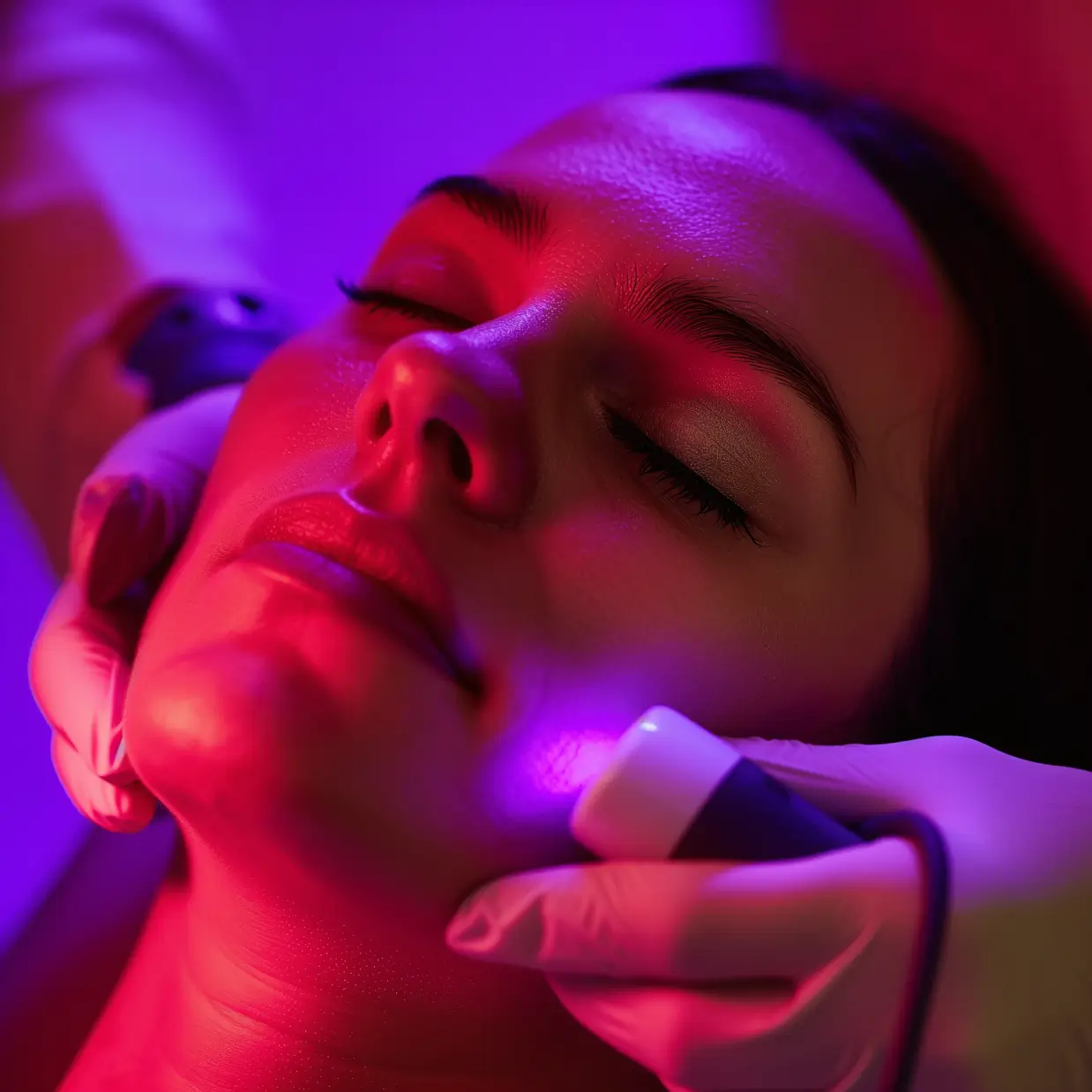
Read The Step-By-Step Guide: How to Tighten Face Skin for Women Over 40
“I started facial yoga and it’s made such a difference. I do it every morning for 5 minutes and my skin feels tighter and more toned.” – Maria G., 46
As women get older, their skin starts losing collagen and elastin, leading to sagging in the face and neck area. While some degree of sagging is a natural part of the aging process, your lifestyle, skincare routine, and certain medical treatments can significantly contribute to a firmer and more youthful appearance. Here are some effective strategies, along with testimonials from women who have seen real results:
| Method | Effectiveness | Cost | Time Commitment |
|---|---|---|---|
| Topical Retinoids | High | Low | Daily use |
| Peptides | Moderate | Low to Moderate | Daily use |
| Microneedling | High | Moderate to High | Several sessions |
| Ultherapy | High | High | 1-2 sessions |
| Renuvion/Morpheus8 | High | High | 1-3 sessions |
| Face Yoga | Low to Moderate | Low | Daily practice |
Everyday Care for Skin
Washing daily clears away dirt but should not strip natural oils. Look for cleansers with ceramides to hydrate skin and calm redness. Putting on antioxidant serums with vitamin C next protects from UV damage. This helps skin keep making collagen. Applying lightweight hyaluronic acid gels pulls in moisture to the areas prone to wrinkles like around eyes. Patting these quickly-absorbing gels onto damp skin gives best results. Then use richer creams with ceramides to seal in the hydration.
It’s essential to always apply broad spectrum SPF 30 sunscreen. Reapplying every 2 hours when outside stops further sun damage. Sun exposure breaks down collagen and elastin over time, causing saggy skin and wrinkles.
Here are our top anti aging skin care picks for each price point:
| Step | Budget-friendly | Mid-range | Luxury |
|---|---|---|---|
| Cleansers | CeraVe Hydrating Facial Cleanser | La Roche-Posay Toleriane Hydrating Gentle Cleanser | SK-II Facial Treatment Cleanser |
| Toners | Thayers Alcohol-Free Rose Petal Witch Hazel Toner | Paula’s Choice SKIN BALANCING Pore-Reducing Toner | AmorePacific Vintage Single Extract Essence |
| Serums (Vitamin C) | The Ordinary Vitamin C Suspension 23% + HA Spheres 2% | Mad Hippie Vitamin C Serum | SkinCeuticals C E Ferulic |
| Moisturizers | Neutrogena Hydro Boost Water Gel | Olay Regenerist Micro-Sculpting Cream | La Mer Crème de la Mer |
| Sunscreens | Australian Gold Botanical Sunscreen Tinted Face Mineral Lotion SPF 50 | EltaMD UV Clear Broad-Spectrum SPF 46 | Shiseido Ultimate Sun Protection Lotion WetForce for Sensitive Skin and Children SPF 50+ |
| Retinol Products | The Ordinary Retinol 0.5% in Squalane | RoC Retinol Correxion Deep Wrinkle Night Cream | Drunk Elephant A-Passioni™ Retinol Cream |
Eat Collagen-Promoting Foods
A diet with fruits, vegetables, lean protein, nuts and anti-inflammatory fatty fish helps build collagen. Vitamin C aids collagen production. Bone broth provides collagen building blocks for firmer skin.
| Day of the Week | Breakfast | Lunch | Snack | Dinner | Drink |
| Monday | Greek yogurt with mixed berries | Spinach salad with salmon and avocado | Walnuts and almonds | Grilled chicken with quinoa and broccoli | Green tea; 8 glasses of water |
| Tuesday | Oatmeal with sliced banana and honey | Turkey and whole grain sandwich | Carrot sticks with hummus | Baked cod with sweet potato and asparagus | Herbal tea; 8 glasses of water |
| Wednesday | Smoothie with kale, kiwi, and almond milk | Quinoa bowl with mixed vegetables | Apple slices with almond butter | Tofu stir-fry with mixed vegetables | Lemon water; 8 glasses of water |
| Thursday | Whole grain toast with avocado | Lentil soup with whole grain roll | Greek yogurt with honey | Grilled shrimp with brown rice and peas | Cucumber water; 8 glasses of water |
| Friday | Scrambled eggs with spinach and feta | Chicken Caesar salad | Mixed berries | Beef stir-fry with bell peppers and onions | Matcha tea; 8 glasses of water |
| Saturday | Banana and almond butter smoothie | Veggie wrap with hummus | Dark chocolate (70% or higher) | Grilled salmon with roasted vegetables | Fruit-infused water; 8 glasses |
| Sunday | Chia seed pudding with mixed nuts | Tomato and mozzarella salad | Edamame | Roast chicken with sweet potatoes and green beans | Peppermint tea; 8 glasses of water |
Use Retinol and Exfoliating Acids
Retinol is a vitamin A cream that helps skin make more collagen and fresher cells. Using it 2-3 nights weekly firms up skin. Alpha hydroxy acid wipes should also be used once or twice weekly to remove dead cells and even out tone. But take care not to over-scrub skin.
Here’s a table outlining a starter regimen for beginners using retinol and exfoliating acids, including product suggestions and advice on how to gradually increase usage:
| Weeks | Retinol Usage | Exfoliating Acids Usage | Product Suggestions |
|---|---|---|---|
| 1-2 | Apply a pea-sized amount of low-strength retinol (0.2%) once a week. | Use a gentle AHA or BHA exfoliant once a week on a different night from retinol. | Retinol: The Ordinary Retinol 0.2% in Squalane, Exfoliating Acid: COSRX AHA 7 Whitehead Power Liquid |
| 3-4 | Increase to twice a week if no irritation occurs. | Increase to twice a week, avoiding nights when retinol is used. | Same as Weeks 1-2 |
| 5-6 | Apply every other night, observing skin’s tolerance. | Maintain twice a week usage, or increase to three times a week for more tolerant skin. | Same as Weeks 1-2, consider introducing products with a slightly higher concentration if well tolerated. |
| 7 onwards | Use nightly as tolerated, or increase strength to 0.5% if well tolerated. | Continue with 2-3 times a week as tolerated, ensuring not to use on the same nights as retinol. | Retinol: The Ordinary Retinol 0.5% in Squalane or similar, Exfoliating Acid: Maintain or opt for Paula’s Choice SKIN PERFECTING 2% BHA Liquid Exfoliant if skin is more tolerant. |
Do Quick Daily Face Workouts
Take just 5 minutes to tone up facial muscles. Open mouth wide, lift eyebrows high, smile big. Finish with gentle neck stretches to sides and down. Don’t over-stretch. Research shows this can subtly lift skin over time.
Get Collagen-Building Medical Treatments
See a dermatologist or plastic surgeon for skin tightening laser sessions, ultrasound or radiofrequency treatments. Though often requiring multiple visits, these procedures remodel collagen fibers under the skin for gradual improvements in sagging. They don’t provide the effects of a full facelift surgery but do tighten and smooth aging skin.
Support Your Body’s Repair Process Through Lifestyle
Sleeping 7-9 hours each night enables the body to fully undergo cellular repair vital for healthy skin cell turnover. Rapid weight loss or gain can also over-stretch facial tissues. Losing or putting on pounds slowly gives skin more time to bounce back. Overall, sticking to healthy lifestyle habits like activity, nutritious food and stress relief preserves skin’s youthful elasticity and function over 40.
| Habit | To Adopt | To Avoid |
|---|---|---|
| Stay Hydrated | ✓ | |
| Balanced Diet | ✓ | |
| Sleep Well | ✓ | |
| Regular Exercise | ✓ | |
| Stress Management | ✓ | |
| Sun Protection | ✓ | |
| Skin Hydration | ✓ | |
| Antioxidant Intake | ✓ | |
| Omega-3 Fatty Acids | ✓ | |
| Avoid Smoking | ✓ | |
| Limit Alcohol | ✓ | |
| Reduce Sugar Intake | ✓ | |
| Minimize Sun Exposure | ✓ | |
| Avoid Harsh Skincare | ✓ | |
| Avoid Touching Face | ✓ | |
| Limit Hot Showers | ✓ | |
| Remove Makeup Before Bed | ✓ |
Tackling Dry Skin In Your 40s

Read The Step-By-Step Guide: How to Take Care of Dry Skin for Women Over 40
“As I entered my 40s, I noticed my skin became increasingly dry and dull. I started incorporating a hyaluronic acid serum into my routine, and I’ve seen real change in my skin’s hydration since.” – Jessica B., 47
Dry skin becomes a common issue as we age due to the decrease in natural oil production, leading to fine lines and a lackluster complexion. While genetics can play a part, incorporating small changes in your skincare routine and lifestyle can make a significant impact in combating dryness, especially during harsh winter months.
When tending to dry, mature skin, certain proper practices promote hydration while some all-too common mistakes can exacerbate parchedness. Follow these dos and don’ts for nourished, comfortable skin:
- Do opt for thicker, rich moisturizers containing ingredients like petrolatum, vitamin E, jojoba oil and shea butter. These nourishing elements provide a protective barrier preventing precious water loss.
- Do consume hydrating foods like fruits and veggies with high water content. Strawberries, cucumber, watermelon and zucchini hydrate from within.
- Do add moisture to dry indoor air during winter through humidifiers. Seek models allowing cool mist output aimed at faces overnight.
- Do apply hyaluronic acid serums onto damp skin, then spritz thermal spring water over top to amplify absorption. The water-loving molecule pulls hydration into skin this way.
- Don’t cleanse with typical bar soaps or foaming washes containing sulfates/detergents that strip natural oils.
- Don’t crank thermostats above 70° Fahrenheit. Heat paired with indoor air triggers heightened water evaporation from skin.
- Don’t use abrasive physical exfoliators like brushes or scrubs. These micro-tears worsen trans-epidermal moisture loss.
- Don’t linger longer than 10 minutes in hot showers that dehydrate. Stick to lukewarm temps instead.
Anti Aging Skin Care Serums and Targeted Treatments
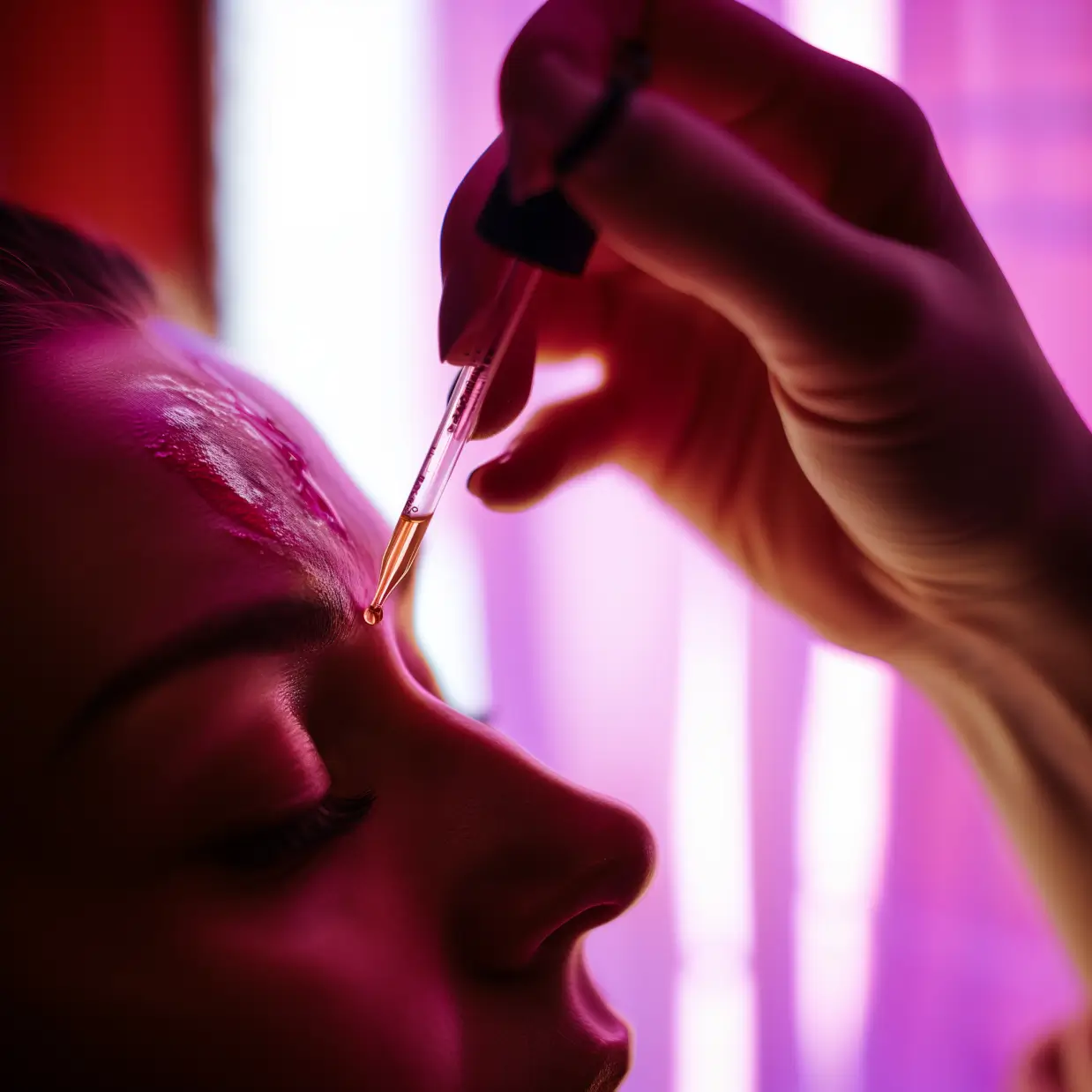
Read The Step-By-Step Guide: How To Apply Face Serums For Maximum Anti-Aging Effects
“After using a niacinamide serum for a few weeks, I noticed a significant reduction in my dark spots. It’s now a staple in my nighttime routine.” – Anita S., 52
Serums designed to mitigate hyperpigmentation can work on reducing the appearance of dark circles, melasma, dark spots and balancing skin tone with active ingredients like niacinamide, alpha-arbutin and licorice root extract. On the other hand, wrinkle-reducing serums typically contain glycolic acid or biopolymers that help in tightening the skin’s surface and diminishing fine lines.
Many advanced serum formulations combine several components to provide holistic anti-aging benefits. Often you’ll find that comprehensive anti aging skin care serums combine powerful elements like hyaluronic acid with vitamins C & E as well as squalane which together tackle multiple concerns.
It’s important to remember that continual application is key when using these targeted treatments if one wishes for effective results over time – they must become an integral part of your daily skincare ritual applied consistently following proper directions.
Start with Fresh Skin
Wash your face with a gentle cleanser and lukewarm water to remove dirt, oil and makeup before serum. Dry skin gently with a soft towel until slightly damp – you want it a bit moist so serums absorb better. Don’t rub hard or you may cause irritation.
How Much Anti-Aging Serum to Use
About 3-5 drops should be enough, depending on your face size. Dot serum around your face––cheeks, forehead, nose, neck. Then use light, soft touches to smooth serum outwards so it covers all skin evenly. Too little serum won’t give results, but too much can’t properly soak in either.
Where to Apply Anti-Aging Serums on Your Face
It’s important to apply serum all over your face, not just on one spot you want to treat. You want the smoothing and brightening effects serums give to reach your whole face!
Blend Gently
Rubbing hard while putting on serum doesn’t help it soak in. Always use super gentle sweeping motions across your face to blend serum in until it feels smooth. Harsh rubbing can irritate face skin.
Give Anti-Aging Serum Time to Soak In
Before using other anti aging skin care products, give serum at least 1 minute to completely soak in. If your face still looks shiny or feels tacky after a minute, serum needs more time. Be patient! Letting it fully absorb means you get the most benefits.
What Results to Expect
Be realistic – serums improve skin gradually over weeks, not overnight. Keep using them consistently for at least a month before expecting to see changes in things like lines, spots or brightness. Monitor progress by taking facial photos over time.
Are Anti-Aging Serums Safe for Sensitive Skin?
Serums can initially cause irritation, redness, peeling and sun sensitivity, especially if skin isn’t used to them. Start by applying every other day. Stop using if irritation happens. Also, too many serums at once can upset skin. Stick to one new serum at first.
Storing Anti-Aging Serums Properly
Keep serums sealed tight and away from sunlight and big temperature swings so light and air don’t degrade the beneficial ingredients. Store vitamin C serums in the fridge to be safe.
Minimizing Pores
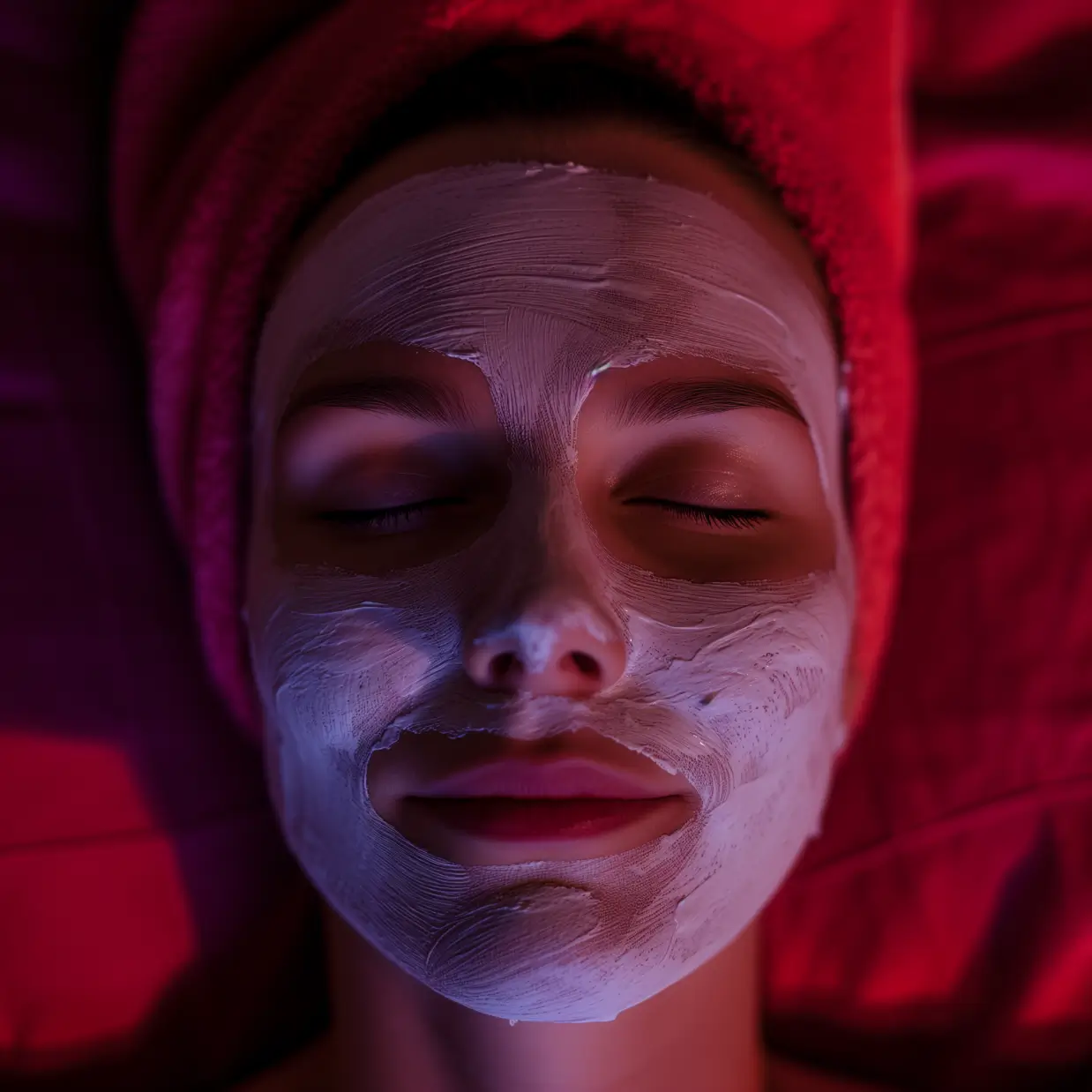
Read The Step-By-Step Guide: How to Minimize Pores for Women Over 40
“I struggled with large pores for years until I started double-cleansing every night. Removing all traces of makeup before bed made such a difference!” – Emily R., 43
Pores play a vital role in maintaining skin health, yet the issue of them appearing enlarged is a common concern for women as they get older. To reduce their size, it’s essential to engage in thorough cleansing and consistent exfoliation, alongside applying products that help refine pores.
Four keys for clear, refined looking pores:
- Prevent blockages: Oil-based anti aging skin care products and makeup residue clog pores so ensure thorough makeup removal before bed
- Gently exfoliate: Fruit acid cleansers containing glycolic or lactic acid lift dirt from pore openings
- Tighten pores: Using clay masks weekly shrinks enlarged pores by absorbing excess oil and tightening skin
- Hydrate adequately: Dry skin lacks elasticity so pores appear more prominent whereas well-hydrated skin shows less visible pores
- A bonus tip – look for products containing Clarifying D-Panthenol which reduces inflammation inside pores leading to a tighter, refined appearance long-term with consistent application.
Personalized Anti Aging Skin Care Routines
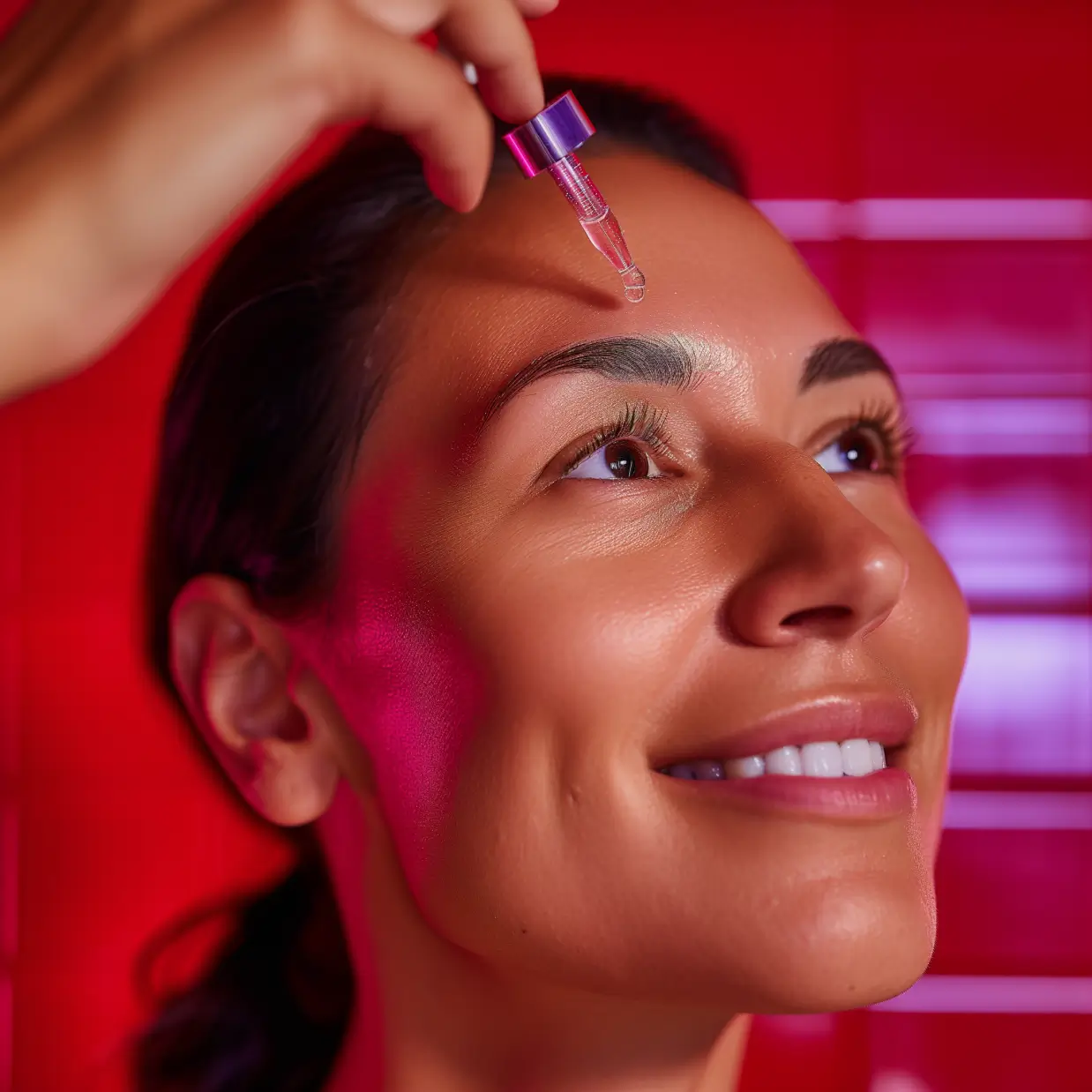
Read The Step-By-Step Guide: How to Conduct an Anti-Aging Morning Skincare Routine
“Switching to a gentle cleanser and using a hyaluronic acid moisturizer has made my dry, flaky skin a thing of the past. My face feels so much smoother and more hydrated now.” – Priya N., 45
Using the right anti-aging skincare products every morning protects your skin against damage that causes wrinkles, spots and sagging – things like sunlight, pollution and dryness break down collagen and elastic fibers in skin. Using products with antioxidants and hydrating ingredients daily builds up skin’s defenses against these issues over time.
Wash Gently
Use a mild cleanser without harsh detergents or soap, which strip natural oils. Dry skin gently with a soft towel. Oily skin may tolerate gel cleansers with exfoliating acids. The goal is lifting dirt without compromising moisture.
Apply Vitamin C Serum
Vitamin C neutralizes free radicals from sun and pollution before they degrade collagen and elastin fibers leading to sagging and wrinkles. It also helps build more collagen. Use a 10% serum daily before heavier creams – this gives it best chance to absorb.
Treat Eyes
The thin skin around eyes shows aging fast. Gently smooth special eye creams containing peptides and antioxidants around the full eye zone including lids to hydrate skin and reduce lines.
Moisturize
Reinforce skin’s moisture barrier against external aging factors with anti-aging moisturizers containing ceramides and hyaluronic acid. These replenishing ingredients smooth and plump up wrinkles.
Use Broad Spectrum Sunscreen
UV damage causes 80% of visible facial aging. Broad spectrum SPF 30 guards against sun spots, wrinkles and skin cell mutations. Reapply every 2 hours outside. Make it your number one anti-aging focus daily.
Summary
The quest for sustained radiance necessitates understanding unique skin properties and committing to appropriate solutions. Bespoke anti-aging regimens address specific aging concerns while promoting dermal vitality through informed ingredient choices backed by science. Adopt lifestyle habits that foster beauty from within through nourishing rest, nutrition and mindfulness.
Frequently Asked Questions
Q. What is best for anti-aging skin?
A. Using protective antioxidants alongside deeply hydrating and collagen-supporting ingredients can make a visible difference in signs of aging.
Q. Which brands effectively target aging skin?
A. Reputable dermatologist-recommended brands like SkinCeuticals, SkinMedica and Revision Skincare offer medical grade anti-aging results.
Q. What are some key anti-aging ingredients?
A. Retinol, vitamin C, niacinamide, alpha hydroxy acids and peptides each address various aging concerns. Many cutting-edge formulas combine these.
Q. How do I know which products suit my skin type?
A. Pinpointing skin properties after cleansing reveals tendencies – like oiliness, dryness or sensitivity – that guide product selection.
Q. How can I tighten sagging facial skin?
A. Topical retinoids, ultrasound or radiofrequency treatments and face yoga promote collagen for gradual tightening without surgery.
Q. What is the best way to use anti-aging ingredients?
A. Follow directions closely, apply products consistently and give solutions time to work – at least 8-12 weeks. Monitor progress through photographs.
Q. Can I delay skin aging through lifestyle factors?
A. Adequate sleep, stress management, exercise, wholesome nutrition and UV avoidance help fortify skin to deter premature aging.
Q. My skin is sensitive. What are some alternatives to retinol?
A. Bakuchiol, derived from seeds of the babchi plant, offers antioxidant protection comparable to retinol without irritation.
Q. When does menopause impact skin and how can I care for it?
A. Declining estrogen after menopause thins skin making it prone to dryness. Address aggressively with humectants and richer creams.
Q. What should I look for with “clean beauty” regimens?
A. Scan labels for third party “green” certifications. Avoid synthetic fragrance, parabens and phthalates. Focus on antioxidant and vitamin-packed formulas.



